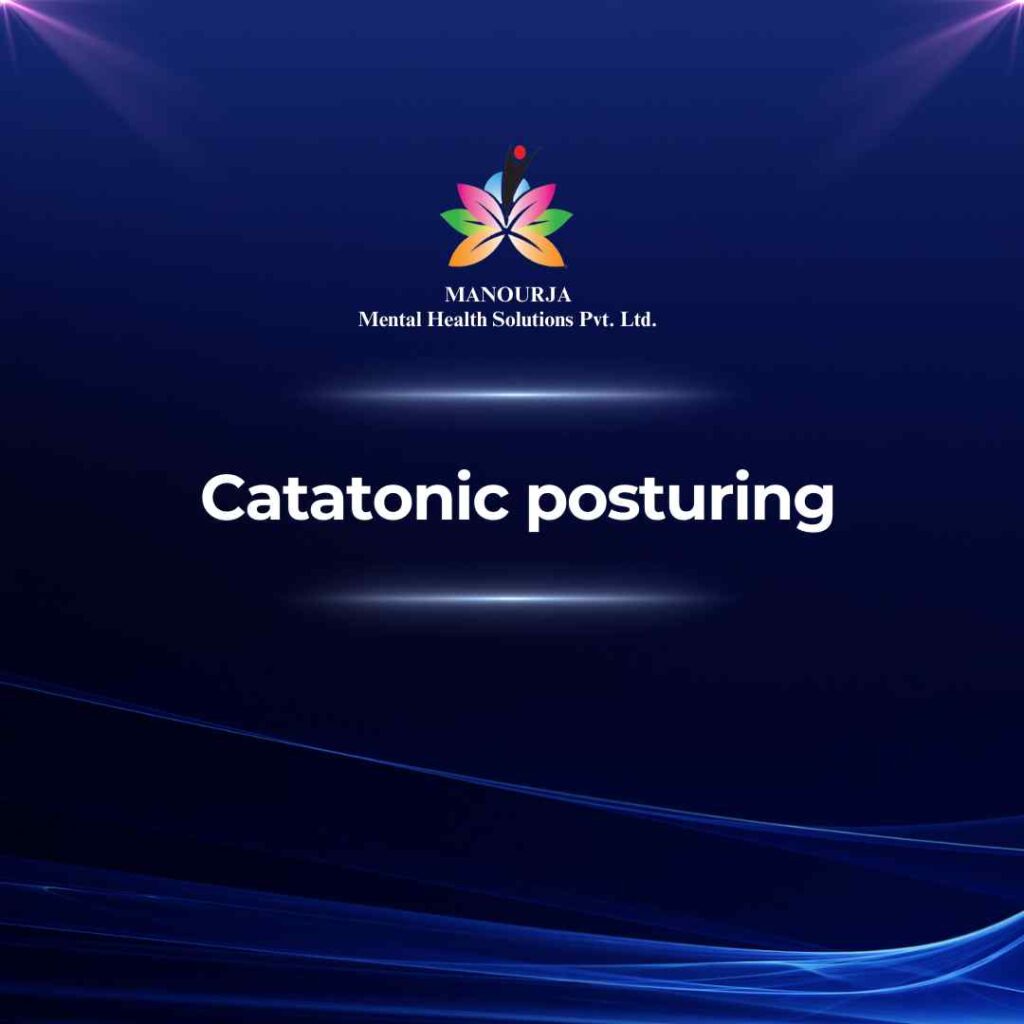Catatonic Posturing

Catatonic posturing refers to the adoption of rigid and abnormal body positions or poses, often maintained for prolonged periods without any apparent purpose. Individuals experiencing catatonic posturing may hold their limbs or torso in unusual positions, such as remaining frozen in a stiffened posture, assuming awkward or contorted positions, or exhibiting repetitive and stereotyped movements.
Catatonic Posturing as a Sign of Mental Illness
Catatonic posturing is a characteristic symptom of catatonia, a neuropsychiatric syndrome associated with various mental health disorders. It represents a disruption in motor function and is often accompanied by other catatonic symptoms such as immobility, mutism, or negativism. Catatonic posturing can significantly impair daily functioning and may pose risks to the individual’s physical health and safety.
Mental Health Conditions Associated with Catatonic Posturing
Schizophrenia with Catatonia
- Catatonic posturing is frequently observed in individuals with schizophrenia, particularly during acute psychotic episodes or catatonic states. It may manifest as maintaining rigid body positions, holding fixed postures, or displaying repetitive movements or mannerisms.
Major Depressive Disorder with Catatonia
- Severe cases of major depressive disorder can involve catatonic features, including posturing, rigidity, or stupor. Catatonic posturing may co-occur with depressive symptoms such as psychomotor agitation or retardation.
Bipolar Disorder with Catatonia
- Catatonic posturing can occur during manic or depressive episodes in bipolar disorder, where individuals may exhibit motor disturbances alongside mood instability and psychosis.
Catatonic Disorder Due to Another Medical Condition
- Catatonic posturing may arise as a result of medical conditions such as neurodevelopmental disorders, metabolic disorders, or neurological diseases, where it may represent a manifestation of underlying brain dysfunction.
Autism Spectrum Disorder (ASD)
- Some individuals with ASD may exhibit catatonic-like symptoms, including posturing, repetitive movements, or stereotyped behaviors, particularly during periods of stress, sensory overload, or emotional dysregulation.
Catatonic posturing requires comprehensive evaluation and management by mental health professionals to address underlying psychiatric or medical conditions contributing to the symptoms. Treatment approaches may involve medication (such as benzodiazepines or electroconvulsive therapy), supportive care, and addressing any precipitating factors or comorbidities associated with catatonia. Early recognition and intervention are essential for optimizing outcomes and preventing complications associated with catatonic states.
At MANOURJA, we believe in the transformative power of counseling. Our experienced therapists offer a safe and supportive space where you can explore your thoughts, emotions, and challenges. Through personalized counselling sessions, we’ll work together to develop coping strategies, build resilience, and achieve lasting positive change. Discover the path to a healthier, happier you with MANOURJA counselling services.
MANOURJA Rehabilitation Services
At MANOURJA, we’re dedicated to helping you in rebuild your life, after difficult times. Our rehabilitation services focus on understanding what you need to move forward, whether you’re recovering from addiction, trauma, or any psychological – social challenges. We create personalized plans, that are all about helping you, regain your strength and find hope again. With a caring team by your side, you’ll have the support to make real progress and take steps toward a brighter, healthier future.
